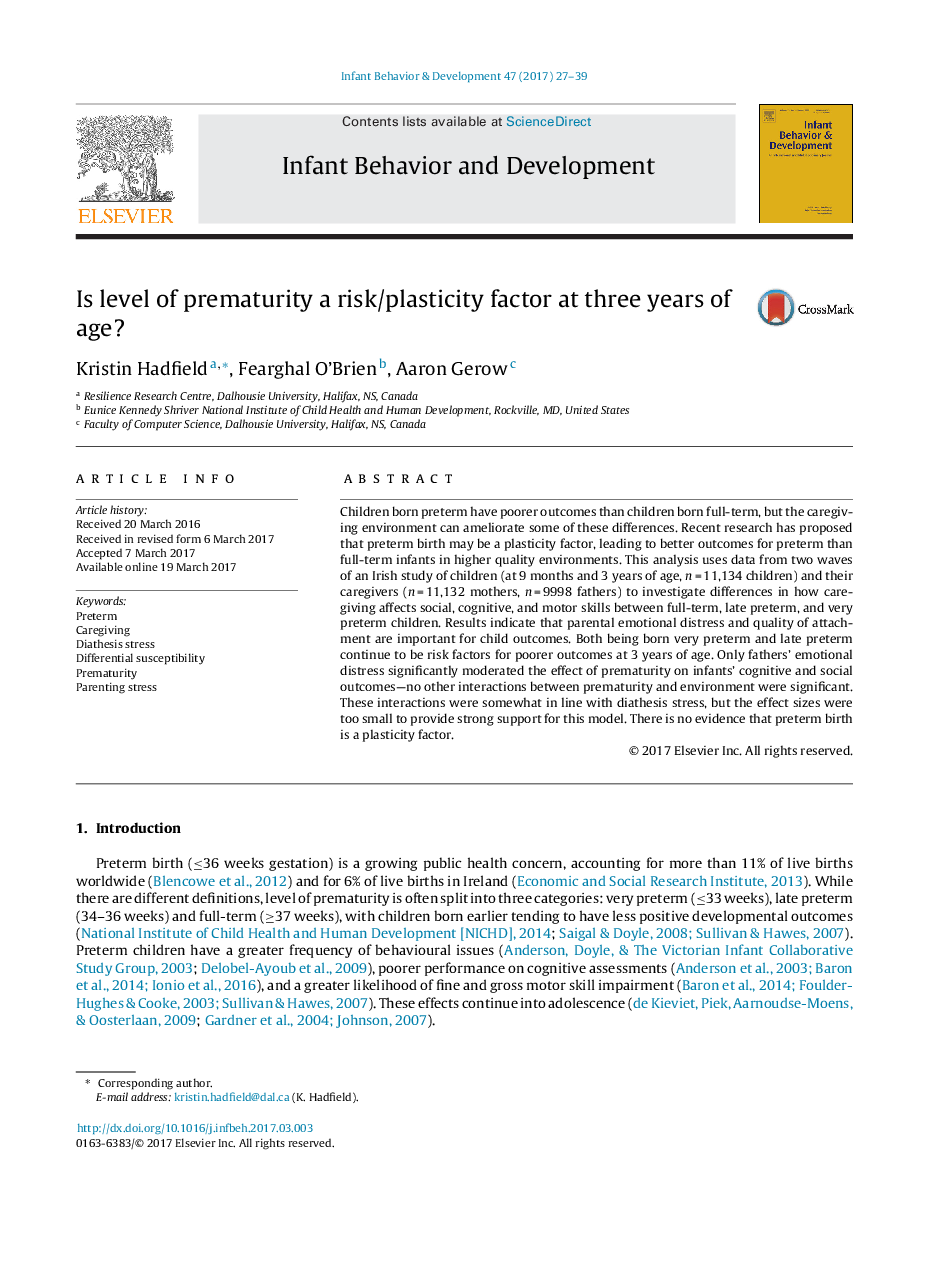| کد مقاله | کد نشریه | سال انتشار | مقاله انگلیسی | نسخه تمام متن |
|---|---|---|---|---|
| 5039826 | 1473414 | 2017 | 13 صفحه PDF | دانلود رایگان |
- Preterm birth is not a plasticity factor at 3 years.
- Very preterm infants are more affected by fathers' emotional distress than full-term infants.
- Both very preterm and late preterm infants have poorer cognitive outcomes than full term infants.
- Infants born very preterm have poorer motor skills outcomes.
Children born preterm have poorer outcomes than children born full-term, but the caregiving environment can ameliorate some of these differences. Recent research has proposed that preterm birth may be a plasticity factor, leading to better outcomes for preterm than full-term infants in higher quality environments. This analysis uses data from two waves of an Irish study of children (at 9 months and 3 years of age, n = 11,134 children) and their caregivers (n = 11,132 mothers, n = 9998 fathers) to investigate differences in how caregiving affects social, cognitive, and motor skills between full-term, late preterm, and very preterm children. Results indicate that parental emotional distress and quality of attachment are important for child outcomes. Both being born very preterm and late preterm continue to be risk factors for poorer outcomes at 3 years of age. Only fathers' emotional distress significantly moderated the effect of prematurity on infants' cognitive and social outcomes-no other interactions between prematurity and environment were significant. These interactions were somewhat in line with diathesis stress, but the effect sizes were too small to provide strong support for this model. There is no evidence that preterm birth is a plasticity factor.
Journal: Infant Behavior and Development - Volume 47, May 2017, Pages 27-39
